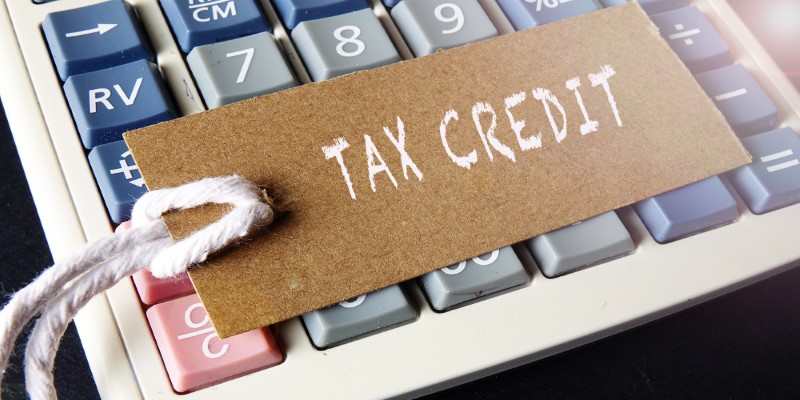Understanding and Checking Your Business Credit Score: A Step-by-Step Guide
Checking your business credit score is essential for maintaining a healthy financial standing and gaining access to funding. Just like personal credit scores, business credit scores impact your ability to secure loans, get favorable terms from suppliers, and grow your business. Heres a comprehensive guide on how to check your business credit score and what it means for your company.
In this article, we have covered all the essential aspects of business credit scores and how to maintain them. So, let's jump right into the article, have a look at it, and understand the intricacies.
Understanding Business Credit Scores

Business credit scores, also known as commercial credit scores, measure your companys creditworthiness. Unlike personal credit scores, which typically range from 300 to 850, business credit scores usually range from 0 to 100. Various credit reporting agencies calculate these scores, with the most prominent being Dun & Bradstreet, Experian, and Equifax. Maintaining a good business credit score can benefit your company in several ways:
Easier Loan Approvals: Lenders look at your business credit score to determine your eligibility for loans and lines of credit.
Better Interest Rates: A higher score can lead to more favorable interest rates, saving your business money in the long run.
Improved Supplier Terms: Suppliers may offer better payment terms and conditions to businesses with solid credit scores.
Increased Business Opportunities: Some clients and partners may review your business credit score before deciding to work with you.
Steps to Check Your Business Credit Score

Identify the Major Credit Reporting Agencies
The first step is knowing which agencies provide business credit scores. The three leading agencies are:
Dun & Bradstreet (D&B): Their PAYDEX score ranges from 0 to 100 and is based on payment history.
Experian: Their Intelliscore Plus score also ranges from 0 to 100, considering various factors, including payment history and public records.
Equifax: They provide a Business Credit Risk Score, which ranges from 101 to 992, and a Payment Index, ranging from 0 to 100.
Gather Your Business Information
To check your business credit score, you will need specific details about your company, such as:
- Business name
- Address
- Employer Identification Number (EIN)
- Contact information
Having this information handy will make the process smoother.
Register with the Credit Reporting Agencies
Each credit reporting agency has a process for registering and obtaining your credit score. Heres how to get started with each:
Dun & Bradstreet: Visit their website and apply for a D-U-N-S Number if you dont already have one. This unique identifier is crucial for accessing your PAYDEX score. Once registered, you can purchase a credit report or use free tools like CreditSignal to monitor changes in your score.
Experian: Go to Experians website and create an account for your business. You can then buy a business credit report or subscribe to a monitoring service to keep track of your score.
Equifax: Register on Equifaxs business site to access your Business Credit Risk Score and Payment Index. They offer various products, including one-time reports and ongoing monitoring services.
Review Your Credit Reports
After obtaining your credit reports, carefully review the information provided. Check for accuracy, ensuring that all payment histories, credit accounts, and public records are correct. Look for any discrepancies or errors that could negatively impact your score.
Understanding Your Business Credit Report
A business credit report typically includes several sections, each providing valuable insights into your companys financial health:
Credit Score: This is the primary score indicating your businesss creditworthiness.
Payment History: Details of your companys payment behavior with suppliers, creditors, and lenders.
Credit Utilization: The ratio of your companys outstanding credit balances to its credit limits.
Public Records: Information on bankruptcies, liens, and judgments against your business.
Credit Inquiries: A record of inquiries made by creditors or lenders into your business credit profile.
Addressing Errors and Tips on Your Business Credit Report
Errors on Your Business Credit Report
If you find errors on your business credit report, take immediate steps to correct them:
Gather Evidence: Collect documents and records supporting your claim that the information is incorrect.
Contact the Reporting Agency: Contact the agency that provided the report. Most have online forms or customer service numbers for dispute resolution.
Submit a Dispute: Provide a detailed explanation of the error and include your evidence. Be clear and concise in your communication.
Follow-up: Keep track of your disputes progress and ensure that corrections are made promptly.
Tips for Improving Your Business Credit Score
Maintaining and improving your business credit score requires consistent effort. Here are some strategies to help:
Pay Bills on Time: Payments on time are one of the most important things for a good credit score. Keep up with the reminders or use the automatic payments option to avoid late fees.
Monitor Credit Utilization: Keep your credit balances low relative to your credit limits. Aim to use less than 30% of your available credit.
Establish Trade Lines: Work with suppliers who report to credit agencies. Regular, positive transactions with these suppliers can boost your score.
Avoid Frequent Credit Inquiries: Too many credit inquiries can signal risk to lenders. Only apply for credit when necessary.
Review Your Credit Reports Regularly: Regular monitoring helps you stay on top of your credit status and quickly address any issues.
Conclusion
Checking your business credit score is a vital practice for any business owner. It not only helps you understand your companys financial health but also opens doors to better financing opportunities and business relationships. By regularly reviewing your business credit report, addressing errors, and taking steps to improve your score, you can ensure that your business remains in a solid financial position. Stay proactive, and make your business credit score a priority to support your companys growth and success.












